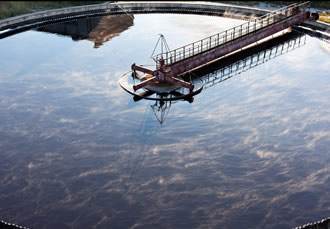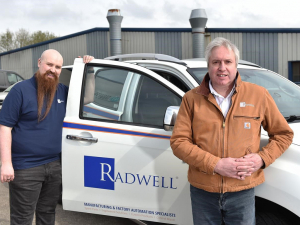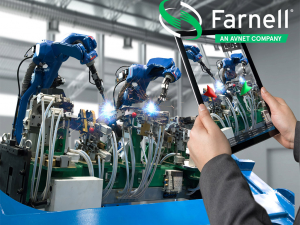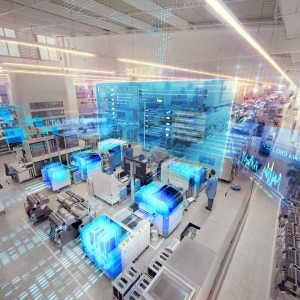Wake up and smell the coffee – not the wastewater

We have all opened that questionable bottle of milk at one point or another for the smell test and there’s no clearer example of how important smell is when it comes to food. Foul odours and other problems caused by poor wastewater management can result in an array of problems for food and beverage production businesses, as Mario Kelly, VP of the Wastewater Innovation Platform at global water, energy and maintenance solutions provider, NCH Europe, explains.
Did you know that around 80 percent of the flavours we taste are a result of smell? That’s why food doesn’t really taste of anything when you have a cold. Our sense of smell is also programmed to keep us safe by identifying the scent of rotting food produce and telling us to steer clear.
So, imagine you’re showing a potential client around your food processing plant and they keep picking up an aroma of ‘gone off’ food stuffs. You know it’s not your produce – but they don’t. Although, even if they did know that the smell was resulting from organic particulates decomposing inside your grease traps and drains it can be enough to stop them making a purchase.
Poor effluent management can have a variety of negative ramifications for food and beverage manufacturers, including bad odours, blockages, increased costs and possible fines. Given the amount of sugars, fats, gums, milk, proteins and particles of food making their way into wastewater systems, it’s hardly surprising that there are challenges to overcome.
All these contaminants, along with high levels of biochemical oxygen demand, cause blockages, foul odours and overloads at wastewater plants. These things cost businesses money as a result of both plant downtime, charges and fines from government or local authorities.
Many common solutions to these issues don’t really help. For instance, trying to clear a grease trap by pumping will not prevent the build up of fats, oils and greases (FOGs) in the drain line. In addition, many biological products used to tackle effluent are dormant, meaning they require many hours to become active; others simply liquefy the waste and move the problem on.
This problem is becoming so prevalent that governments and local authorities are introducing stringent requirements regarding waste emitted by businesses into municipal sewers. This is due to the high levels of FOGs and dangerous chemical build up in sewers that cost local authorities a lot of money to remove before they cause damage to the environment.
However, all of these issues can be addressed easily with a system like BioAmp from NCH Europe. This computer controlled microbial fermentation unit, installed onsite, delivers active, naturally occurring bacteria directly into drains, grease traps and lift stations. The naturally occurring bacteria begin working immediately to break down FOGs and other organic waste– clearing blockages and eliminating odours.
The system is automatically controlled, using the latest PLC technology and thanks to a GSM connection key functions can be controlled remotely. The FreeFlow bacteria has full National Sanitation Foundation (NSF) approval for use in and around food processing areas.
By using an environmentally friendly answer to effluent management, food and beverage manufacturers can save money, reduce charges, avoid fines, stop blockages and eliminate the bad smell left by inefficient alternatives. It’s time to wake up and smell the coffee – not the wastewater.
Similar articles
More from NCH Europe
- Prioritise lubrication so you don't burn baby burn! 29th January 2018
- There's a light at the end of the fatberg tunnel 17th August 2017
- Biofilms: They’ll leave you hot under the collar 15th August 2017
- We need to address the need for better metallurgy education 27th July 2017












Write a comment
No comments